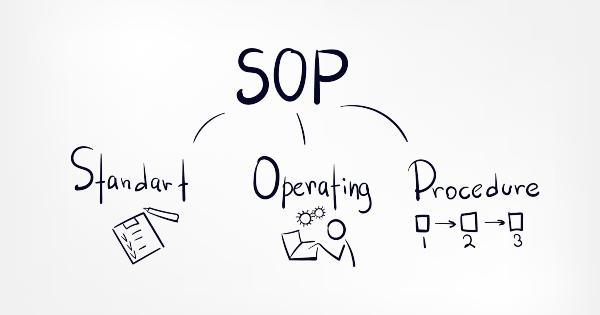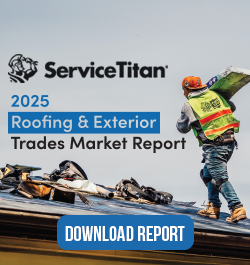Everything Roofing Companies Need to Know About The Families First Coronavirus Response Act

By Ben Briggs and Elliot Haney, Cotney Construction Law, LLC.
Last week, President Trump signed the Families First Coronavirus Response Act (FFCRA) in the first of what is expected to be many federal aid bills aimed at limiting the effects of the COVID-19 outbreak.
Passed by the Senate late Wednesday evening and subsequently signed into law by President Trump, the FFCRA underwent some important revisions since passing in the House of Representatives. The final version of the FFCRA includes two significant laws regarding paid employee leave: (1) the Emergency Paid Sick Leave Act and (2) the Emergency Family Medical Leave Expansion Act. The FFCRA, which will officially take effect on April 2 and will remain in effect through December 31, has serious implications for employers within the construction industry.
Emergency Paid Sick Leave Act
Application
Once it goes into effect, the Emergency Paid Sick Leave Act will require all private employers with fewer than 500 employees, as well as all public sector employers, to provide paid sick leave to employees who suffer “qualified emergencies” relating to COVID-19. Specifically, the Act provides that employees of covered employers are entitled to paid sick leave if they are unable to work or telework due to one of the following six (6) reasons:
-
The employee is subject to federal, state or local isolation or quarantine order;
-
The employee has been advised by a health-care provider to self-quarantine due to COVID-19 concerns;
-
The employee is experiencing symptoms of COVID-19 and is seeking a medical diagnosis;
-
The employee is caring for an individual who is subject to a federal, state or local order or who has been advised by a health care provider to self-quarantine;
-
The employee is caring for his or her child whose school or child care has closed or is unavailable due to COVID-19 precautions; or
-
“The employee is experiencing any other substantially similar condition specified by the secretary of Health and Human Services in consultation with the secretary of the treasury and the secretary of labor.”
If an employee is unable to work or telework due to one of these six reasons, the employer is required to provide up to 80 hours of paid sick leave for full-time employees, or an amount equal to the number of hours normally worked over a two-week period for part-time employees.
The cash amount of paid sick leave an employee is entitled to receive under the Act depends largely on the type of “qualified emergency” that warrants the employee’s leave. If an employee is taking paid sick leave based on any of the first three (3) reasons listed above, the employee must receive his or her regular pay rate, capped at $511 per day (and $5,110 in the aggregate). On the other hand, if the employee is requesting leave based on reasons 4 through 6 above, the employee is only entitled to be paid at two-thirds of his or her regular rate of pay, capped at $200 per day (or $2,000 in the aggregate).
Employers must also post in a “conspicuous” workplace location a notice containing information regarding the requirements of the Emergency Paid Sick Leave Act. The Department of Labor (DOL) is supposed to create and make publicly available a model notice by March 25, 2020.
Relation between Emergency Paid Sick Leave and Employer’s Preexisting Leave Policy:
Employers may not require an employee to use any accrued sick leave or paid time off in lieu of, or before, using the paid sick leave to which an employee is entitled under the Emergency Paid Sick Leave Act.
Emergency Family Medical Leave Expansion Act
Emergency Family Leave
The Emergency Family Medical Leave Expansion Act amends the preexisting Family Medical Leave Act (FMLA) to add one new qualifying reason for job-protected leave under the FMLA: when employees are unable to work (or telework) because they must care for their child whose school or child care is closed due to COVID-19 precautions. Generally, this new basis for family leave applies to all private sector employers with fewer than 500 employees and to any employee who has worked for the employer for at least 30 days.
An employee receiving emergency family leave under the new Act is entitled to up to 12 weeks of job-protected leave with continuing group health insurance coverage. The first ten days of emergency family leave is unpaid, after which the employer must pay the employee two-thirds of the employee’s regular pay rate, capped at $200 per day (or $10,000 in the aggregate), for any additional emergency family leave the employee takes under the Act.
After Emergency Family Leave
Generally, the employee’s emergency family leave will end when the employee has exhausted his or her 12 weeks of leave or when the employee is no longer unable to work due to caring for a child whose school or child care is closed for COVID-19 precautions. When the employee’s emergency family leave ends, the Act requires the employer to reinstate the employee to either his or her same position or an equivalent position. However, this reinstatement requirement does not apply to employers with fewer than 25 employees if (a) the employee’s former position no longer exists due to economic conditions or other changes in the employer’s operating conditions caused by COVID-19; (b) the employer has made reasonable efforts to restore the employee to an equivalent position; and (c) the employer makes reasonable efforts (for essentially one year after the employee’s leave ends) to contact the employee if an equivalent position becomes available.
Small Business Exception
With respect to both the Emergency Paid Sick Leave Act and the Emergency Family Medical Leave Expansion Act, the FFCRA authorizes the DOL to issue regulations creating an exemption for businesses with fewer than 50 employees if complying with either Act “would jeopardize the viability of the business as a going concern.” Accordingly, employers with fewer than 50 employees should monitor ongoing FFCRA developments to see if the DOL issues regulations regarding a small business exemption and whether they may qualify for the exemption.
Collective Bargaining Agreements
The FFCRA specifically provides that it should not be construed to limit the rights or benefits to which an employee is otherwise entitled under any collective bargaining agreement. Thus, employers of union-workers should consult their collective bargaining agreements to determine how the requirements of the FFCRA may impact the benefits already provided under the collective bargaining agreement. Additionally, employers subject to multi-employer bargaining agreements may fulfill their obligations under the FFCRA by making contributions to a multiemployer fund based on the paid leave each employee would be entitled to under the multiemployer collective bargaining agreement. Employees subject to such an agreement can then seek contributions under the FFCRA from that multiemployer fund.
Prohibited Employer Conduct
Both the Emergency Paid Sick Leave Act and the Emergency Family Medical Leave Expansion Act include potential penalties or remedies against employers who fail to issue the paid leave required under the respective Acts or who discharge, discipline, or otherwise discriminate against employees who seek to exercise their rights under the Acts. The potential penalties or remedies against such employers include payment of lost wages, interest, liquidated damages, attorneys’ fees and costs, and/or monetary penalties.
Expanded Employer Tax Credits
To address the financial strain compliance with the FFCRA is likely to have on employers, the FFCRA includes tax credits related to paid leave issued under the Emergency Paid Sick Leave Act or the Emergency Family Medical Leave Expansion Act. Specifically, employers may receive refundable tax credits for the employer portion of the Social Security tax to cover wages paid to employees for paid leave under the above emergency sick leave and family leave programs.
Conclusion
It is important for all employers to understand what is required of them under the new laws enacted in response to the COVID-19 outbreak. However, it is also important to recognize that these new federal laws are only part of the picture – there are other federal, state, or local laws and mandates that may affect how you do business amidst the COVID-19 pandemic. How all of these different laws and government mandates interplay is an important question for your attorney.
Learn more about Cotney Construction Law, visit their RCS Directory.
Stay up to date with the latest roofing industry news when you sign up for the RCS Week in Review e-news.
Author’s note: The information contained in this article is for general educational purposes only. This information does not constitute legal advice, is not intended to constitute legal advice, nor should it be relied upon as legal advice for your specific factual pattern or situation.
Cotney Construction Law is the General Counsel for NRCA, FRSA, WSRCA, NWIR, TARC, RT3, NSA. TRI, and many other roofing associations. With 14 offices across the United States, Cotney Construction Law fights for the roofing industry nationwide.






















Comments
Leave a Reply
Have an account? Login to leave a comment!
Sign In